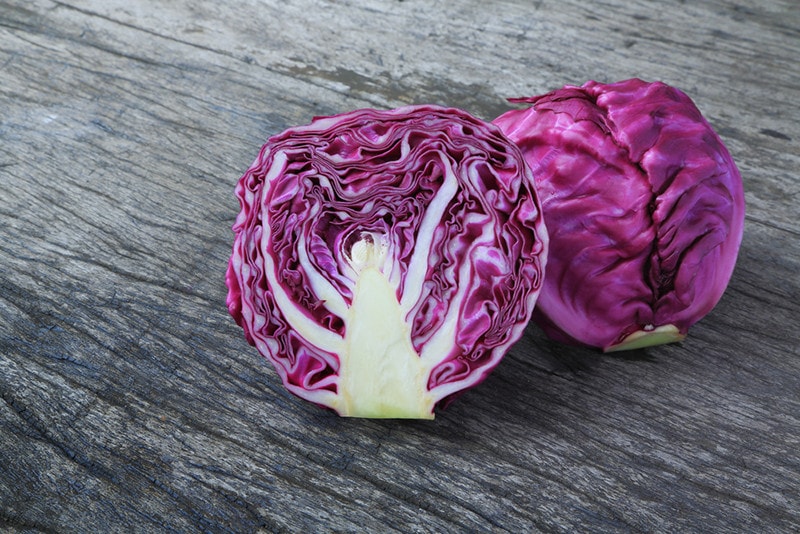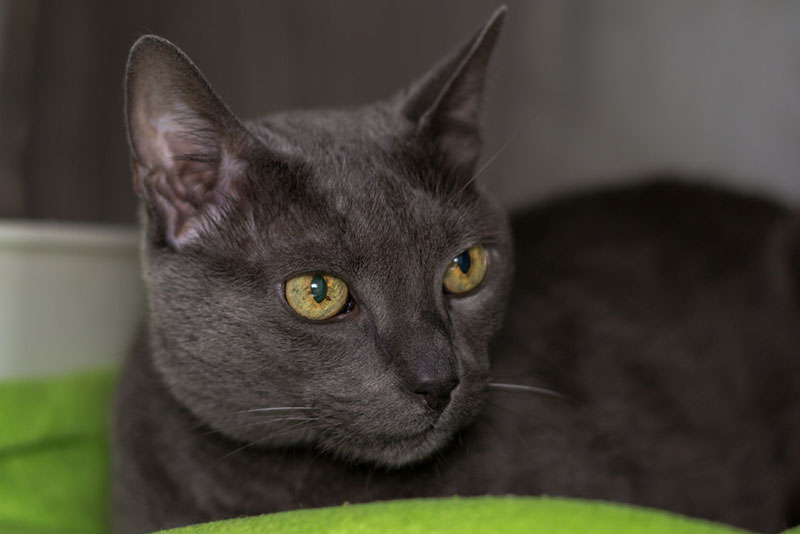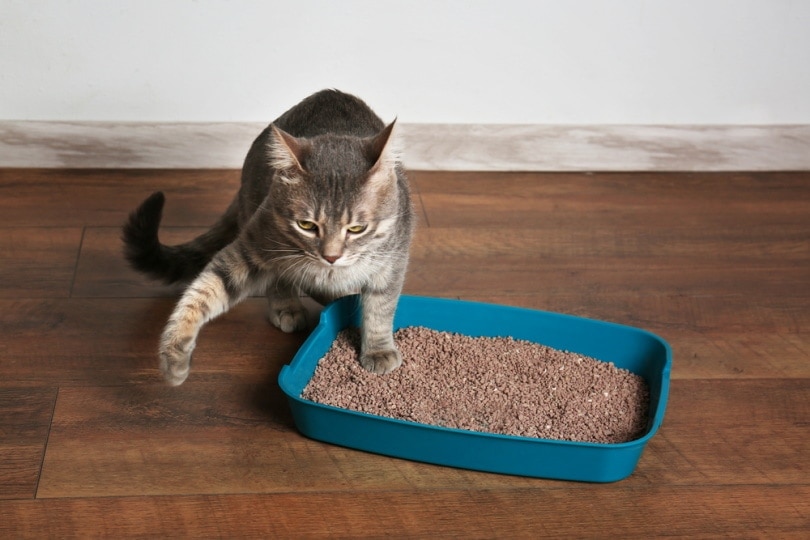Can Cats Eat Cabbage? Vet Reviewed Facts & Nutrition Guide
Updated on

Cabbage is a highly nutritious veggie that many dieticians consider a “superfood” for people. It’s so healthy that you may wonder if the nutritional benefits humans garner from cabbage will translate to your cat. While cabbage isn’t a toxic vegetable like onions or garlic, it’s not something that cats need in their diet. Cats are obligate carnivores that benefit from a predominantly meat-based diet.
Read on to learn why there are plenty of other species-appropriate things to feed your cat that don’t include cabbage.
The Perfect Feline Diet
As mentioned above, cats are obligate carnivores, meaning they rely on the nutrients in animal products. Your sweet lap cat that loves nothing more than playing with feather wands and snoozing in the sunshine evolved as a hunter that consumes prey high in protein. True carnivores lack the proper metabolism to digest a plant-based diet properly.
According to VCA Canada, diets based solely on plant protein will not be digested properly, causing harm and potentially even death if fed as the only source of protein.1 In addition, several jurisdictions have introduced laws which mandate animal protein in a pet cat’s diet. Depriving them of meat or attempting to turn them into a vegetarian pet is considered animal cruelty by the RSPCA.2 Vegetables do not contain the essential amino acids that cats need to thrive.
Can Cats Eat Cabbage?
So, knowing what you know now about the perfect feline diet, you have probably deduced that cabbage isn’t an appropriate snack for cats. But how can that be when it is so nutritious for humans?
Unfortunately, most of the benefits of cabbage will not translate for cats because of how their gastrointestinal mechanisms operate. The few benefits it may offer would be further offset by the fact that most vegetables should be cooked before being fed to cats. Cooking lowers any vegetable’s nutritional yield. Vitamins C and B (which cabbage is a good source of) are especially prone to nutrient breakdown via cooking.
In addition, cabbage is high in fiber, which can cause gastrointestinal issues for cats whose systems are not designed to handle so much fiber.
That said, cabbage is not toxic to cats. You don’t need to fret if your cat suddenly takes a liking to this veggie, but know that you’re not doing your pet any favors by letting them eat cabbage. Most cats taste-test human food simply out of curiosity, so don’t let your cat’s interest in cabbage fool you into thinking they needs this vegetable in their diet.

What Are Better Snacks to Offer Cats Instead?
There are many alternate species-appropriate treats you should offer your cat in place of vegetables.
Meat and fish are generally big hits with cats. Cats that are not used to raw meat-based diets shouldn’t be offered raw meat or raw organ meat because it may lead to digestive distress (even if the food is free of contaminants). Raw fish should never be offered to cats (even those that are on a raw diet). For cats that are not on raw diets, ensure any of the meat you’re offering is cooked and plain. Seasonings and spices aren’t good for cats as they can contain toxic ingredients, such as onions or garlic.
Eggs are a great source of protein and fat for cats. Cats on a raw diet can be fed pasteurized eggs as a treat. For those on a non-raw diet, eggs should be plain and ideally hard boiled before offering them to your pet.
Of course, commercially manufactured treats are another great and cat-appropriate treat option. We like PureBites Chicken Breast Freeze-Dried Cat Treats because they’re made with a single ingredient: real chicken breast. Alternatively, you can take the time to prepare some treats for your cat at home.
Remember that treats should only comprise about 5-10% of your cat’s daily nutritional intake and aren’t a substitute for a nutritionally balanced meal plan.
Now that you know what you can safely feed your cat, it’s just as important to find a bowl that supports their health and well-being. With whisker-friendly bowls and a wide tray to catch any spills, our Hepper NomNom Cat Bowl is our favorite option.
Final Thoughts
Vegetables are generally not recommended or healthy for cats. While they provide many beneficial nutrients for humans, the same nutritional benefits are not extended to our feline family members.
If your cat has eaten a bit of cabbage, there’s no reason to fret. They aren’t toxic; they just aren’t a species-appropriate food. Remember, cats are obligate carnivores and need animal protein to survive and thrive.
Featured Image Credit: StepanPopov, Shutterstock












